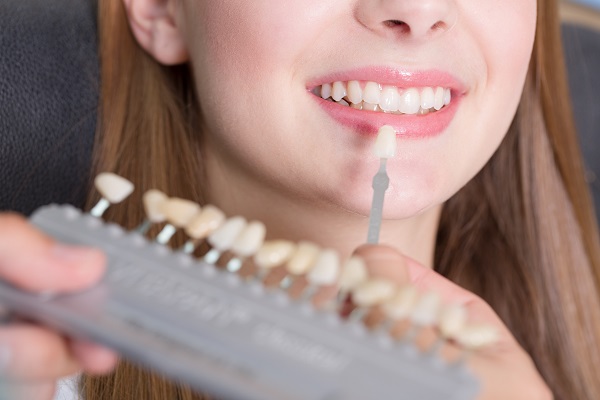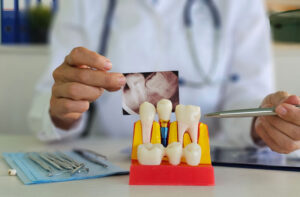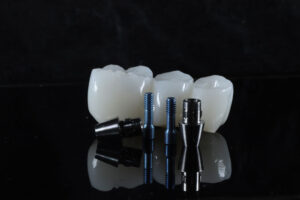How Long Do Dental Implants Last?
If you are looking for long-term tooth replacement, dental implants are a great way to go. These prosthetics last longer than other devices that can be used to replace a missing tooth like bridges or dentures. So, just how long do dental implants last?
The answer to that question depends on multiple factors like the person's lifestyle, diet, habits and oral hygiene routine. The science of implants has made so many advancements in recent years; the rate of functionality or rejection issues is extremely low.
The different parts of dental implants
Let us take a closer look at the three main components that make up a dental implant. This will make it easier to understand how the different factors that affect the device's longevity work.
1. Implant: This is a screw or post that is inserted into the patient's jawbone. It is normally made with titanium, but it can be made with other materials like zirconium for those with allergies to metals.
2. Abutment: This is a small fixture that is attached to the external-facing end of the implant. It is used to hold the crown that serves as a replacement tooth in place.
3. Crown: This is the part that can be seen above the patient's gum line. It looks like a natural tooth and it is attached to the abutment.
Generally speaking, the abutment and crown are more likely to become damaged than the implant itself. This is because they are exposed to more things that can damage them.
Getting the most out of dental implants
If the patient practices good oral hygiene, the implant should last a lifetime. Unfortunately, crowns do not enjoy that much longevity, so it will need to be replaced in about 15-20 years. It is possible for a crown to last longer than 20 years if the patient makes oral hygiene a priority. The location of the implant also affects its longevity. An implant that is placed at the back of a person's mouth will deal with greater forces than one that is used to replace a front tooth.
Dental implants are designed to be a permanent way to replace missing teeth, and they are often the first option dentists recommend. While other alternatives like bridges and dentures are cheaper than implants, they do not provide the natural fit and functionality that a person gets from getting implants.
Dentures tend to slip about, require the use of awful tasting adhesives and can be quite uncomfortable. Bridges are more firmly secured in the person's mouth, but these devices do not prevent the bone tissue loss that occurs when a person loses a tooth. Both devices come with rigorous cleaning routines that can easily add 20 minutes to a person's bedtime routine.
Are dental implants right for you?
If you have lost one or more teeth, dental implants are the way to go. You get an artificial tooth that looks and functions just as well as a real one. Stop by our San Antonio office today for a consultation.
Request an appointment here: https://www.preferreddentalcenter.com or call Preferred Dental Center at (210) 822-8500 for an appointment in our San Antonio office.
Check out what others are saying about our services on Yelp: Read our Yelp reviews.
Recent Posts
How Can Veneers Improve My Smile?
Only a few people have naturally flawless smiles, which is why treatments like veneers exist. Dental veneers serve as a simple yet effective method of improving the appearance of the smile. Mostly produced from porcelain material, the thin shells are bonded to the front side of the teeth to cover imperfections.To make veneers, the dentist…
Who Is A Good Candidate For All-on-4?
If you have lost your teeth to disease or injury, you have multiple teeth restoration options like All-on-4® dental implants. Replacing lost teeth is essential for proper oral health and function. Since the jawbone, gums and teeth all function as a single system, missing teeth usually have a domino effect, causing further tooth loss, gum…
What Is Sedation Dentistry?
Sedation dentistry allows people who are concerned about potential pain and discomfort to relax during dental procedures. Dental anxiety is common, especially among those who have an unpleasant history with the dentist. Fortunately, there are different sedation dentistry options to give patients a comfortable experience in the dental office.Sedation dentistry involves the administration of a…
Invisalign For Bite Issues
Originally, Invisalign® was only designed to address crookedness, crowding or spacing issues in the teeth. However, over the years, the technology has greatly improved, allowing for advancements when it comes to what issues it can tackle. A common question is whether or not bite issues can be addressed with Invisalign® clear aligners. Each patient is…
Recent Posts
How Can Veneers Improve My Smile?
Only a few people have naturally flawless smiles, which is why treatments like veneers exist. Dental veneers serve as a simple yet effective method of improving the appearance of the smile. Mostly produced from porcelain material, the thin shells are bonded to the front side of the teeth to cover imperfections.To make veneers, the dentist…
Who Is A Good Candidate For All-on-4?
If you have lost your teeth to disease or injury, you have multiple teeth restoration options like All-on-4® dental implants. Replacing lost teeth is essential for proper oral health and function. Since the jawbone, gums and teeth all function as a single system, missing teeth usually have a domino effect, causing further tooth loss, gum…






